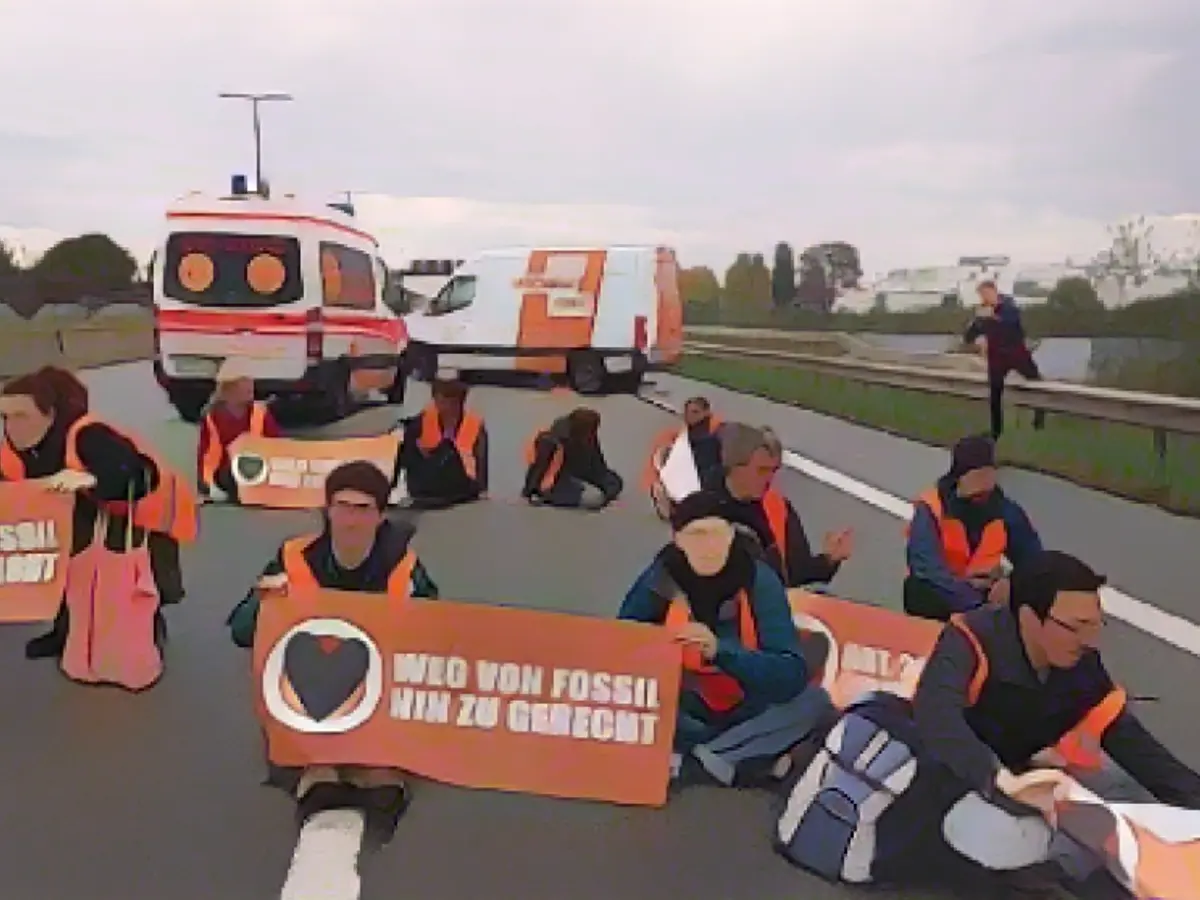Climate Activism's Inner Struggles: Lea Bonasera's Exit from Last Generation
Berlin - The climate crusaders of the so-called "Last Generation" are grappling with internal strife! Recently, discontent has bubbled over due to the group's inability to achieve its goals. Now, shockingly, a prominent member is stepping down!
On Tuesday morning, an official announcement from the "Last Generation" public chat revealed that founding member Lea Bonasera was resigning and leaving the group. Bonasera, who famously protested alongside Henning Jeschke during the 2021 court table sticker hunger strike, was instrumental in the formation of "Last Generation."
The group's internal message board reads: "The reasons behind this decision are currently under investigation by the management team." The statement continues, "This news has left us all utterly dismayed."

As recent as October, Bonasera protested by labeling the Chancellery as "Olaf is lying." Now, her conviction appears to have waned...
The core group aims to overhaul their entire leadership structure. Jeschke, Werner, and Schulz also intend to depart from their executive roles. Jeschke is looking forward to working at an international level, while Werner and Schulz express a desire for fresh challenges.
New Blood in the Core
The forthcoming election for new core group members will be democratic, with eight eager candidates vying for the 40-70-hour position. Voting is slated to commence on Wednesday.

The Challenge of Sustainable Activism
Responding to the "Last Generation"'s crisis and the broader landscape of climate activism in Germany, several factors have arisen.
- Disruption and Fragmentation: Climate activism in Germany has faced disruptions due to the COVID-19 pandemic and subsequent global political shocks, causing a fragmentation of the movement. Activists' focus shifted to various social and political concerns [4].
- Public Perception and Resonance: The climate change message has found limited resonance with a large portion of the German public, worried about the costs and disruption to their lives. This tension within the movement has pushed activists to explore broader social issues [4].
- Adaptation and Rebranding: In response, climate activist groups have chosen to rebrand and shift strategies. They aim to address social concerns through democracy, redistribution, and social justice, hoping to recruit broader audiences and foster public discourse around climate issues [4].
Overcoming the Setbacks
- Broadening Coalitions: By forging broader, more enduring coalitions with worker unions and other organizations, activist groups can better address community concerns while continuing pressing for climate action [4].
- Mentorship and Leadership Development: Establishing mentorship and leadership development programs can help prepare the next generation of activist leaders, who will navigate complex challenges in the climate movement [5].
- Continuous Learning and Adaptation: Encouraging a culture of ongoing learning and adaptation among activist groups can foster resilience. Leveraging technology for training and advocating workforce development can contribute to the movement's sustainability [5].
Despite Bonasera's reasons for departure remaining unknown, the broad context suggests that climate activist groups are grappling with significant challenges. By focusing on coalition building, leadership development, and adaptive strategies, these movements can potentially navigate these challenges and strengthen their efforts to address the climate emergency.








